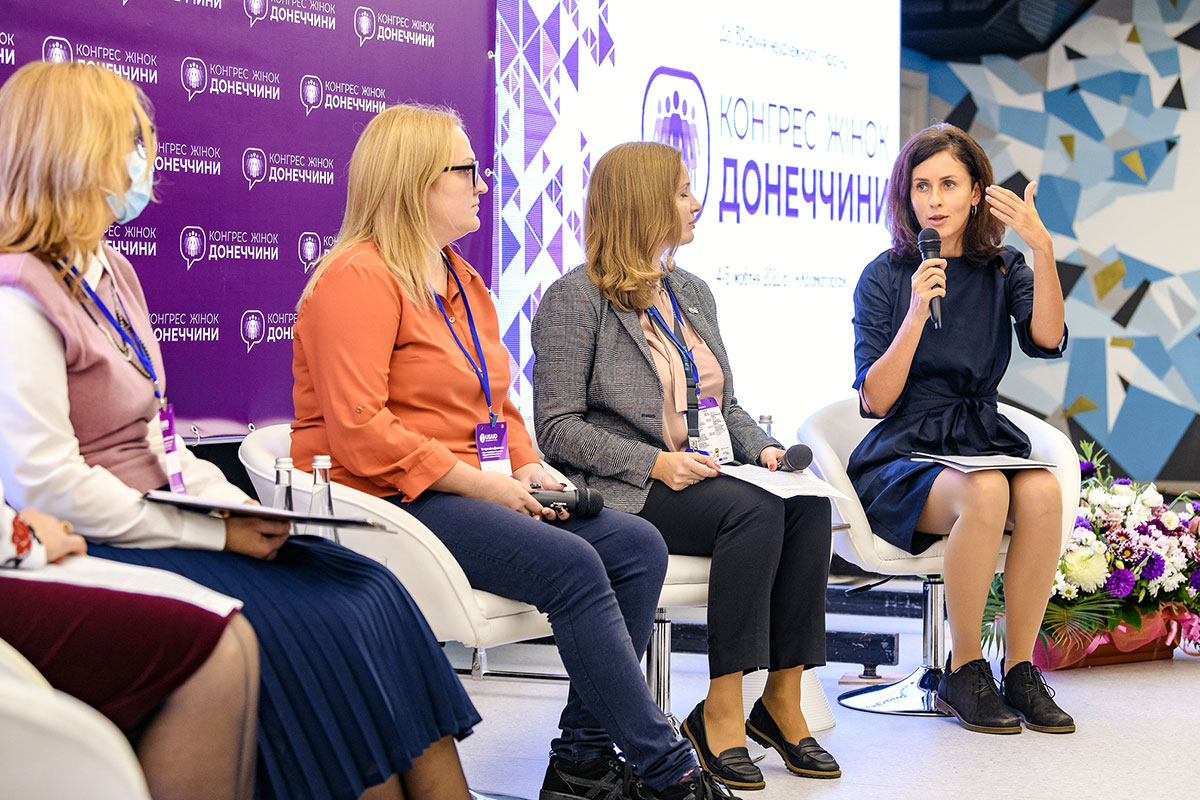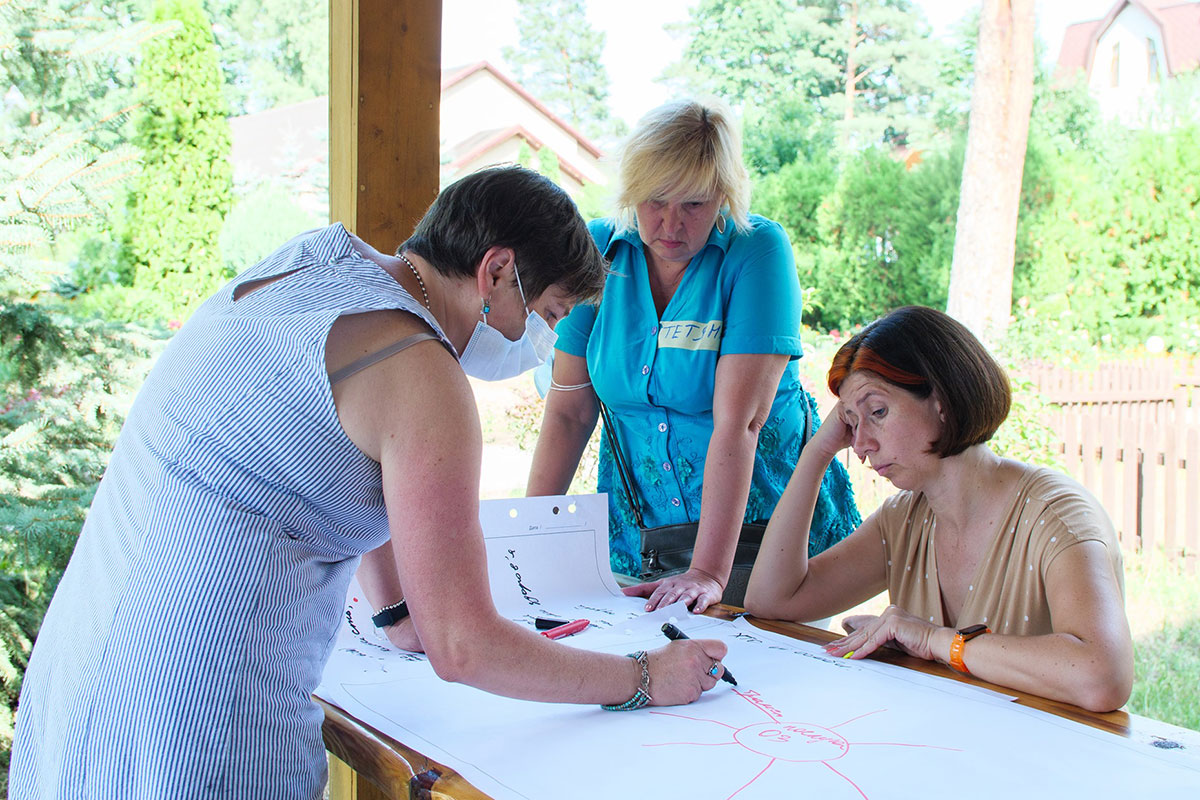Access to livelihoods paid work and sustainable income gained new urgency for millions of women displaced by the war. According to the Rapid Gender Analysis conducted by UN Women and CARE International in April 2022 employment rates and access to employment in both the private and public sectors have dramatically decreased for women and men all over Ukraine. Interviews in Ukraine revealed that income has been one of the main areas impacted by the war for both women and men (mentioned by 28 percent of female respondents and 33 percent of male respondents). In addition, many women have been left to care for their families on their own whether due to their husband being conscripted or deceased, leaving many women responsible for the income of their household. The situation of women with children (majority of refugees) who left the country has been equally challenging, as opportunities to find a job and sustainable income as well as services for children have been limited.
UN Women introduces a pilot initiative aimed at empowering women in the workplace, marketplace, and the community, in partnership with the private sector, launched at the beginning of 2022. With the war, the main effort is made to support employment and income generation for women affected by the war in Ukraine. UN Women established partnerships with over 40 companies in the private sector in Ukraine under the HeForShe solidarity movement in past five years. In 2021, for the second year in a row, Women’s Empowerment Principles (WEPs) have been promoted also in Ukraine through the UN Women-led HeForShe Congress.

